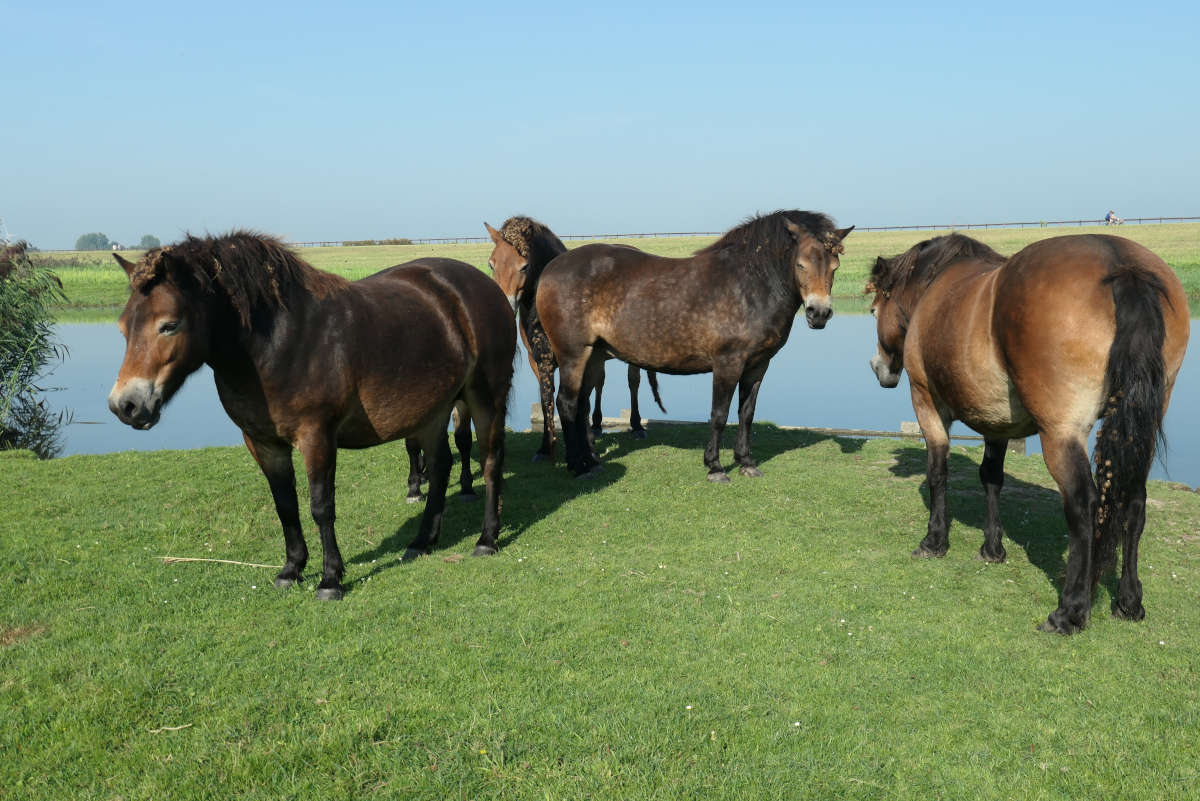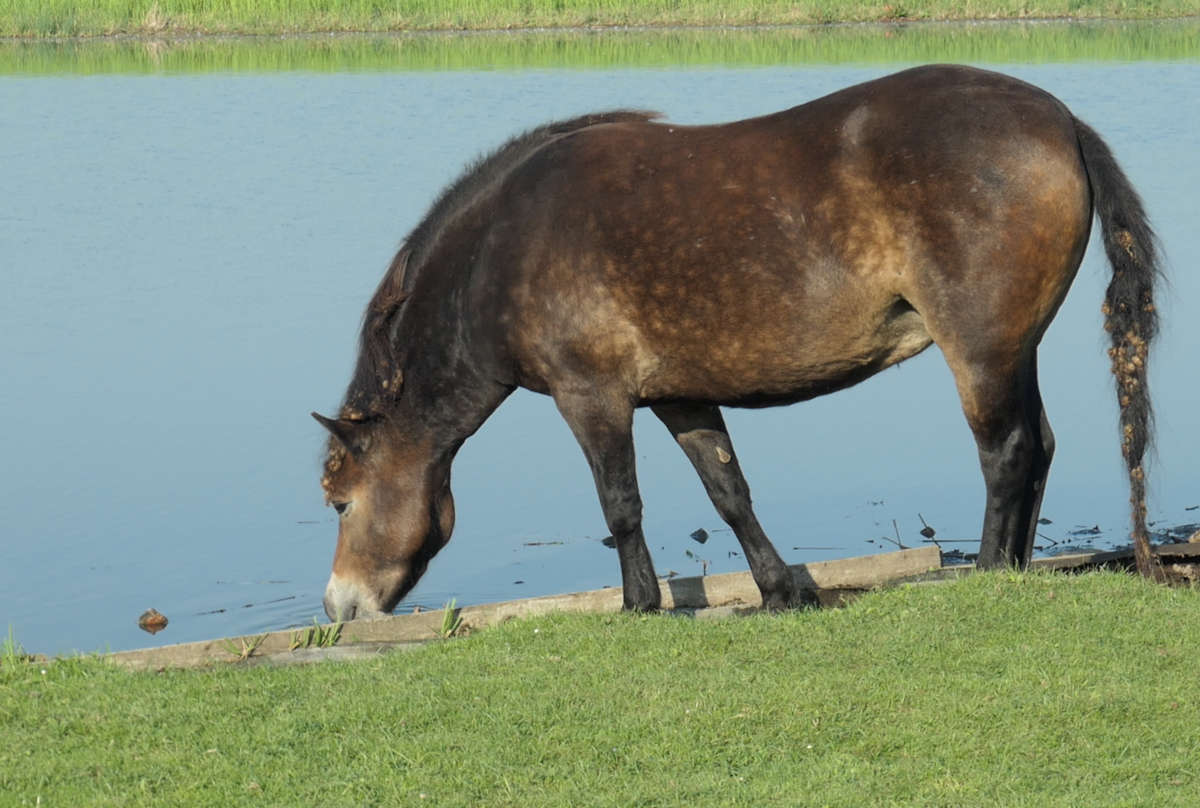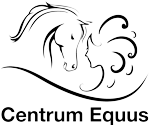Colic in horses

Colic refers to abdominal pain. The most common forms of colic in horses are spasmodic colic (overexcitement of intestinal contractions), gas colic and impaction- and sand colic.
If you suspect colic in your horse, it is advisable to keep a close eye on your horse and contact your vet, especially if symptoms worsen.
Symptoms
The most common symptoms of colic in horses include:
- Pawing at the ground
- Sweating
- Restlessness
- Loss of appetite
- Looking at or kicking the abdomen
- Stretching
- Walking around, repeatedly lying down/rolling and getting up again.
What does your horse need
When your horse shows symptoms of colic, give it light exercise, to keep the digestive tract moving. Look at what your horse needs and feels comfortable with. Perhaps your horse finds touching certain areas of the body pleasant and relaxing. Such as massaging the ears or slow movements with your hands over the back and belly. Pay attention to the subtle signals your horse gives, including with the ears, eyes, tail and legs.
Body and mind
Colic in horses is related with the digestive system. The intestines digest food, absorb nutrients and finally excrete what is not needed, the manure. This symbolises the digestion of emotions, so that food for the soul can be taken and what no longer is needed can be let go.
Because body and mind are connected, emotions and thoughts directly influence the body. For example, if you are very nervous, you can start to sweat or get abdominal cramps, just like a horse.
Looking for the cause
For healing of body and mind, have a look back to when the colic started and look for events that caused sudden or long-term indigestible emotions / stress. This includes the events in your own life. Because of the bond between you and your horse, stress in you will probably influence your horse and vice versa.

Awareness and measures
By paying attention to the cause on different levels, you can take the right measures for your horse, so the intestines will relax and digestion will return to normal. This does not mean you do not need a vet with colic, it is about the message behind the colic. This will hopefully allow you to prevent the colic the next time.
In case of emergency, contact your vet!
In case of emergency, contact your vet!
Related articles
Your horse as mirror of your soul
The self-healing ability of your horse, dog or cat
Share this:

